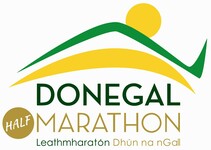Medical Check
The Donegal Marathon Committee urges all runners to consult their Doctor with regard to any medical issues and risks relating to the marathon. Your doctor will be in a position to advise on your participation after consulting your medical history. Runners who should seek medical advice from their doctor include those with existing medical problems or symptoms/signs as follows: Heart disease, Asthma, Diabetes or Epilepsy.
While you may be advised that you can partake your doctor can also inform you of any precautions and preparations you should take.
While you may be advised that you can partake your doctor can also inform you of any precautions and preparations you should take.
Training
We advise that you follow one of our recommended training schedules listed on this website or others that have been recommended to you.
Training should be increased gradually so that you do not suffer prolonged exhaustion. Separate your days of heavy mileage with one or two days of lighter training or rest, so that your body can refuel your muscles with muscle glycogen. Muscular aches and pains occur most commonly after an increase in training.
Vary your training routes, running surface, pace and distance, and do not always use the same pair of shoes.
Always face oncoming traffic and BE VISIBLE, wear bright or reflective clothing at night.
If you are sick, do not train until you have fully recovered. Then start gently and build up gradually. Do not attempt to catch up on lost mileage after illness or injury, as this may cause further damage or illness.
If you have flu it can take as long as a month to recover – so you should consider carefully whether or not you can run a race if the event will take place after you have been ill.
Training should be increased gradually so that you do not suffer prolonged exhaustion. Separate your days of heavy mileage with one or two days of lighter training or rest, so that your body can refuel your muscles with muscle glycogen. Muscular aches and pains occur most commonly after an increase in training.
Vary your training routes, running surface, pace and distance, and do not always use the same pair of shoes.
Always face oncoming traffic and BE VISIBLE, wear bright or reflective clothing at night.
If you are sick, do not train until you have fully recovered. Then start gently and build up gradually. Do not attempt to catch up on lost mileage after illness or injury, as this may cause further damage or illness.
If you have flu it can take as long as a month to recover – so you should consider carefully whether or not you can run a race if the event will take place after you have been ill.
On the Day
We ask all participants to write the details together with a name and contact number of your next of kin (who is not a participant in the marathon) on the reverse of the number. This enables us to contact your next of kin and provide you a quality medical care in case of emergency.
The weather may be cold and rainy, so runners must dress properly. It is important to change out of wet gear as soon as possible.
If it is a hot day, runners are encouraged to slow down or stop. Failure to do so may result in a rapid rise in temperature to dangerous levels, resulting in hear stroke which can cause damage to organs such as liver, brain and kidneys.
If you do find you need medical attention, go to one of the race's First Aid posts, which will be located at various points along the race route.
Runners are encouraged to continue walking after finishing the race. Do not stand about getting cold. Symptoms such as nauseous, vomiting, dizziness and weakness may be the result from standing still or stopped walking. Get your kit and change into warm, dry clothing. Drink in moderation and have something to eat.
The weather may be cold and rainy, so runners must dress properly. It is important to change out of wet gear as soon as possible.
If it is a hot day, runners are encouraged to slow down or stop. Failure to do so may result in a rapid rise in temperature to dangerous levels, resulting in hear stroke which can cause damage to organs such as liver, brain and kidneys.
If you do find you need medical attention, go to one of the race's First Aid posts, which will be located at various points along the race route.
Runners are encouraged to continue walking after finishing the race. Do not stand about getting cold. Symptoms such as nauseous, vomiting, dizziness and weakness may be the result from standing still or stopped walking. Get your kit and change into warm, dry clothing. Drink in moderation and have something to eat.

